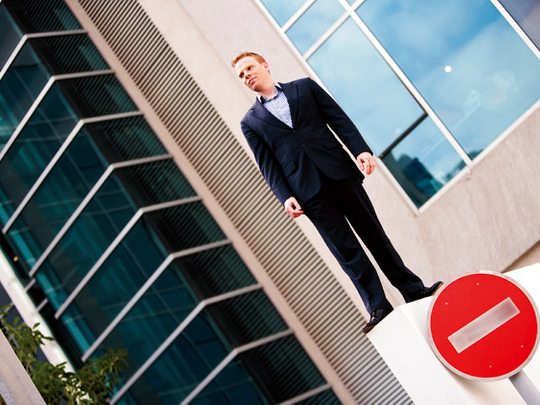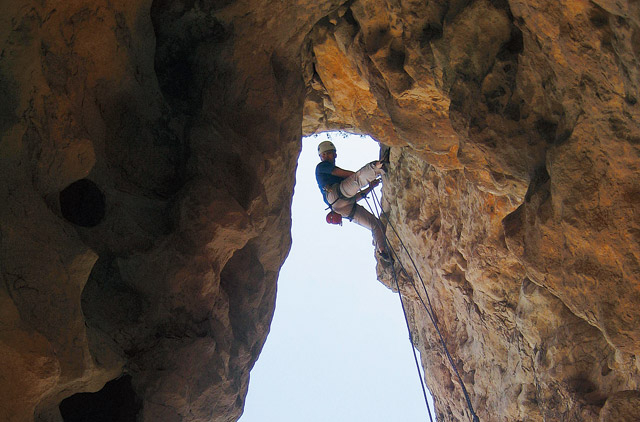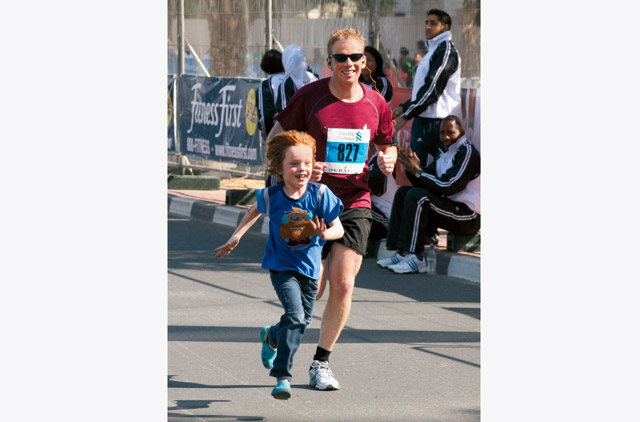
Will Hardie's pursuits have led him to more than 50 countries around the world. He has worked as a travel writer in Europe, reported on conflict as a Reuters correspondent in the Balkans, mountaineered across the Himalayas, Andes, Alps and Rockies, and explored widely in Africa and Asia.
Entrepreneurship is his latest adventure: as co-founder and managing director of Pinnacle PR, Hardie heads a network of offices across Europe and the Middle East. When he's not halfway up a cliff, he can normally be found building communication strategies for national governments or coaching CEOs and heads of state on how to handle media interviews.
With his great love of the outdoors and travel, Hardie's professional pursuits have always melded well with his wanderlust.He has roamed far from his native England where he studied experimental psychology at Oxford before moving to the United States to study journalism at Washington and Lee University, Cleveland.
l me myself
I know that life is short, so it must be lived richly. A lot of people live life day to day, and there's nothing wrong with that. The trouble is, many people view happiness as a goal they must work towards - a destination, something in the future, always just over the horizon. It's so easy to miss happiness in the here and now: happiness that we have in the palm of our hand, happiness in the simple things in life.
I suppose the dilemma lies in the way people perceive happiness - especially driven people with a Western mindset. We associate happiness with the fulfilment of our ambitions. Ambition can satisfy our material desires, but is not the source of fulfilment.
My family recently went on a trip to Nairobi, Kenya. We spent some time at the Hanne Howard Fund orphanage in the slums there and I was struck to be surrounded by smiling faces and laughter. These kids live a deprived and marginal life with none of the luxurious food, clothes and toys that we take for granted - yet they find reasons to be happy. So I make a conscious effort to be happy and grateful for what I have. I don't like complaining; I am very fortunate and I make an effort to live each day as fully as I possibly can.
I want to live with no regrets. I used tostress and worry a lot about planning for the future. I worried about my job, my security, my pension, my career, my mortgage, the house in the suburbs - all of that. As time went byI realised that life has a habit of working out OK, one way or another. I have learned to let go and trust fate. I moved countries every year for ten years. This kind of life looks unstable to lots of people but to me it's an adventure.
I believe people should be more adventurous. It works for me. People are different of course, but who wants to be stuck in the same rut from today to the grave? Sometimes the reason we cannot move forward is fear: fear of the untried and unknown. That isn't the way to live. Not everyone has a choice of course, that is why I am grateful I had my own options. But sometimes we have to take risks. It's scary, but the next step you take in a different direction might be the good change you've been waiting for. Life is short. Take a chance.
I have seen great beauty and great suffering. Natural beauty always strikes me, especially in the mountains. I have climbed and trekked across the most dramatic landscapes in England, the Alps, the Andes, the Himalayas and the Rockies. I find beauty in wide, open spaces and wild, empty places. Suffering also strikes me. I saw terrible things as a journalist - mass graves in Bosnia, buildings full of bodies, people maimed in minefields and bereaved in ethnic cleansing.
I want to see more wild places. I would love to explore Patagonia, climb some of the classic big walls in Yosemite, and see the Australian Outback. Other places on my tick list are New Zealand, Antarctica and Greenland.
I wish time did not move so fast. I feel how quickly the moments pass when I see how our kids have grown. Matthew is seven and Eva is already two. My wife and I travel a lot and do our best to schedule our lives around our kids, but there's never enough time together. It feels like they are bigger and older and different every time I see them.
I get bothered by negativity in people. We should probably know by now that whining and complaining won't get us anywhere. If you feel something is wrong in your life, instead of wasting your energy on pessimism, why not actually do something to change the situation? Whenever I've felt restless and uncertain about where I was in my life, I have acted, even when it meant doing something radically different and, so far, I have had no cause for complaint.
I can do whatever I choose to do with my life. I used to assume, as people do when they are young, that you lose freedom when you get older and surround yourself with obligations and commitments - marriage, family, career and so on. If that's true, I don't care. I see a world of possibility and feel in charge of my destiny. Whatever I do, I'm bringing it all with me.
I dislike the fact that as one gets older it takes twice as much effort to stay fit. I am a very outdoorsy person and into fitness. I do distance running - marathons, half-marathons and 10K - I rock climb, cycle, ski, surf and swim. Not long ago I could afford not to work out fora week, start again and feel fine. If I try that now, it'll take me two weeks to get my shape back to where I started. I took up boxing last year as an indoor sport for the summer, and I wish I had discovered it a decade ago. It's the toughest workout I have ever done and quite the most satisfying, inspiring, addictive and cathartic sport I've ever tried.
I am not alone. I have a family to share my life with, the good times and the bad. Family and kids are the greatest source of joy in my life. As a bachelor I had no idea what to expect, nothing prepared me for the happiness that kids would bring into my life.
l me myself
Me and life in England: I have always loved being outdoors. I grew up in a farmhouse in the countryside in Oxfordshire in the southern part of England. I was always climbing trees, making dens and setting out for adventures in the woods and the fields. My favourite place was my grandparents' holiday home in the mountains of the Lake District, a house which my grandfather bought as a tumbledown barn in the 1960s. Over the years, he rebuilt it using bits and pieces salvaged from other buildings that were being knocked down. It's a very eccentric place with a huge staircase from a cinema and a complete pipe organ from a church - so big they had to cut a hole in the ceiling to fit the pipes in. It's right up high in the most beautiful hills, and it was here that I picked up the taste for mountain climbing, which has defined a big part of my life ever since.
Me and my parents: My early years were tough - my dad left when I was very youngand my mum brought me up on her own, at the same time working hard as a paediatrician.I was probably what you would call quite serious and studious as a child. I loved to read - that was my favourite activity. I would devour books. My dream was to be a journalist like my father. He was a BBC TV news reporter, and latera comedy producer and writer.
Me and my studies: I read Experimental Psychology at Oxford University pretty much by accident. When I was 17, I was living in Sheffield near the university there. One evening, I wandered into a hall where there happened to be a lecture on forensic hypnosis - the techniques police use to probe the minds of witnesses and criminals. That triggered my interest in psychology, which turned out to be a good general-purpose field of study. My degree was in Experimental Psychology and at Oxford the approach they take is very scientific and empirical. We were taught to think like scientists - to look for evidence, to use logic and proof and analysis, to question everything and assume nothing. This shaped my way of thinking and that has served me well ever since - as a journalist and now as a PR consultantand businessman. I am very analytical, I look for systems and structures and organise information. Back then, I worked hard at my studies for a couple of years, but got steadily more involved in student journalism which eventually took over most of my time from my academic studies. I spent most of my third year editing The Oxford Student newspaper.
Me and my work as a travel writer: My first real job was writing travel guidebooks around interesting parts of Europe for Thomas Cook Publishing. The pay was terrible but the work was wonderful. At that time in my life, there was nothing better than the chance to geton a train for six weeks every summer ona mission and an adventure around a big chunk of the continent. My job was to take last year's travel guidebook, go everywhere mentioned in it, update the details and find new points of interest. The first year I did Spain and Portugal; the second year Scandinavia, which took me to Denmark, Sweden, Norway and Finland. The best part about it - something that has returned to my life many times - was being sent to places that I had no choice about and wouldn't necessarily have chosen to go to ofmy own will.
Me and work at Reuters: I joined Reuters asa graduate trainee journalist. Working at Reuters was exciting, for sure. It sent me to places I would never have chosen to go to, opened doors, and gave me access to people I would never otherwise have met - heads of state, top business figures, politicians, diplomats, spies, sportsmen, all sorts of people. At the time, it was incredibly hard work, long hours, and thankless; as a newswire journalist, you don't get to see your name in print, allyou get is the satisfaction of a job well done.For the first half of my career at Reuters, I wasa financial journalist; I got my break into general news when I was posted to Belgrade after the fall of Slobodan Milosevic, to cover Balkan reconstruction. I had a lot of great assignments in this posting - covering the tail end of the Macedonia conflict, for instance, and the hunt for war criminals in Bosnia and Serbia.
I me myself
My foray into the PR industry happened when I asked Reuters to transfer me back to London from Belgrade because there was no PR industry in the Balkans, which meant that Jennifer (my wife) couldn't get work. I couldn't ask her to sacrifice her career for mine, so we moved to a place where we both could work. However, after the excitement of beinga foreign correspondent, a desk job at Reuters in London was very tame. So after a couple of years I was looking for something new. Meanwhile Jennifer had started up Pinnacle, our PR training company, and it was doing very well, so the obvious move was to join what is now the family firm. It was a hard choice and I missed journalism a lot for the first couple of years.I don't look back now though. PR has taken me to even more interesting places and gives me access to people who are just as interesting.
In my journey in the PR world, I have meta few impossible clients. And I'm not very good at dealing with them because I hate to fail. Instead I tend to throw more and more time and effort at them for far too long when I should cut my losses and walk away, which is what has to happen in the end. Also, one of the perks of running your own business is that you get to choose to work with good principled clients who won't expect you do to anything underhanded or shifty.
When it comes to the ‘dream assignmentsin PR', my two favourite PR disciplines are crisis communication and media interviews. Crisis communication is about limiting reputational damage in case of a news disaster, and in many cases, finding ways to gain long-term reputational advantage. It's an area many PR people fear and loathe because the pressure isso high and the spotlight so intense, but I thrive at that pace and I like the chance to work my craft at critical times when it can make sucha difference. So I would like to have been working for BP during the Gulf of Mexico oil spill, for instance.
Looking to the future, if it all goes according to plan I'll be comfortably retired in ten years, by age 45, I will have sold my business and made a fortune. But where I will eventually go, I have no idea. Somewhere with beautiful nature and mountains and where my family is happy. Then again, who knows? I might not be ready to wind down, in which case I'll be off doing something totally new.














